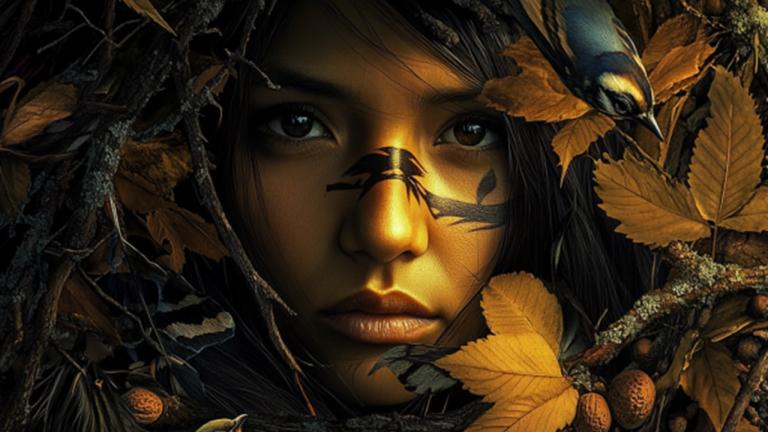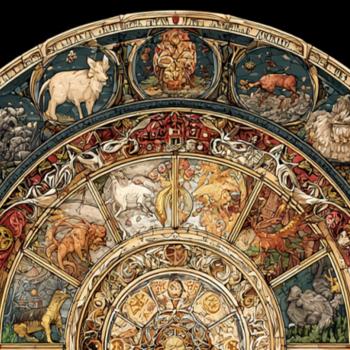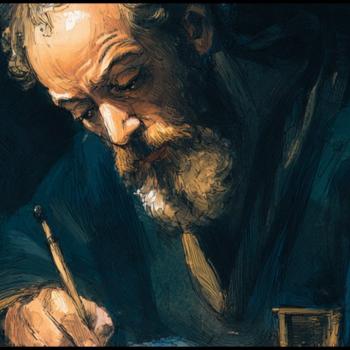
This isn’t just a book; it’s a journey into a new way of seeing the world—one that’s both ancient and refreshingly hopeful. Kimmerer invites us to listen, learn, and, most importantly, act.
Here are some of the deeply spiritual lessons she shares, each one like a strand of sweetgrass braided into a whole:
The Gift of Plants: Gratitude as a Sacred Practice
Kimmerer begins by reminding us that plants are not just resources; they are gifts. Imagine walking through a forest and seeing every tree, flower, and blade of grass as a being with its own story and purpose.
When we shift our perspective, gratitude becomes a natural response.
This idea of reciprocity—giving back to the earth as it gives to us—is deeply spiritual. It calls us to pause, to say thank you, and to ask, “What can I do in return?”
Whether it’s planting a tree or simply offering a prayer of thanks, these small gestures of gratitude honor the sacredness of life.
Indigenous Knowledge and Science: The Wisdom of Balance
Kimmerer doesn’t dismiss Western science; she expands it. Through her Indigenous lens, science becomes less about control and more about relationship.
This blending of ways of knowing reminds us that spiritual wisdom often lies in the tension between two truths.
Imagine balancing a canoe—leaning too far one way, and you’ll tip. The same goes for how we live on this earth.
By respecting both Indigenous traditions and modern knowledge, we find a deeper balance.
The Power of Storytelling: Finding Sacred Meaning
Every culture has its stories—myths that shape how we see the world.
Kimmerer’s storytelling isn’t just about passing time; it’s about weaving connections. Her narratives remind us that the Earth itself tells stories: the rings of a tree, the flow of a river, the migration of birds.
What if we tuned our ears to these tales? What if, instead of rushing past, we stopped to listen?
Storytelling, in this sense, becomes a sacred act—a way of hearing the heartbeat of the world.
The Sacred Art of Slowing Down
Life today is a blur—emails, deadlines, notifications. But Kimmerer invites us to slow down. She teaches us to savor the stillness of a meadow, the rustle of leaves, or the shimmer of dew on a spider’s web.
This isn’t just mindfulness; it’s sacred attention.
Slowing down allows us to enter into the rhythm of nature, a rhythm that aligns us with something greater than ourselves.
Ethical Harvesting: Living with Integrity
One of Kimmerer’s most powerful lessons is about ethical harvesting—taking only what we need and leaving enough for others. It’s a simple idea, but one with profound spiritual implications.
It asks us to see ourselves not as owners of the earth but as stewards. It’s a call to humility, to recognize that every action—every apple picked, every fish caught—has an impact.
Women as Keepers of the Earth
Kimmerer highlights the role of women as nurturers, not just of families but of ecosystems.
There’s something deeply spiritual in this acknowledgment.
In many Indigenous traditions, women are the keepers of seeds, the tenders of life.
In honoring this role, we’re reminded of the sacred feminine—an energy that nurtures, heals, and sustains.
Healing Through Reconciliation
Kimmerer doesn’t shy away from the hard truths of history—colonization, environmental destruction, and the silencing of Indigenous voices. But her vision is one of healing.
Reconciliation isn’t just a political act; it’s a spiritual one. It’s about mending the broken threads in the web of life, both human and non-human.
Language as Sacred Knowledge
One of the most moving parts of Braiding Sweetgrass is Kimmerer’s call to preserve Indigenous languages. These aren’t just words; they’re repositories of ecological wisdom and spiritual insight.
Language shapes how we see the world. By preserving these sacred tongues, we preserve ways of knowing that can guide us toward a more sustainable and reverent way of living.
Think of these languages as containing ancient codes that hold our reality together. These are sounds and symbols and ideas that we should never allow to fade from our grasp.
Hope: A Spiritual Imperative
Despite the environmental crises we face, Kimmerer offers hope—not blind optimism, but a deep, grounded belief in the possibility of change.
Hope, she suggests, isn’t passive. It’s a spiritual discipline, a choice to believe in the possibility of renewal even when the odds seem stacked against us.
This spiritual discipline of hope is the audacity of faith in spite of what we see around us; the power to believe that the earth can heal itself if we just learn how to get out of the way.
Braiding Gratitude and Reciprocity
At its heart, Braiding Sweetgrass is about gratitude and reciprocity. Gratitude opens our eyes to the gifts all around us, and reciprocity challenges us to give back.
This isn’t just an environmental ethic; it’s a spiritual practice. It asks us to step into a relationship with the earth that’s as sacred as any prayer or ritual.
Robin Wall Kimmerer’s Braiding Sweetgrass isn’t just a book—it’s a guide to living a life of deeper connection, humility, and joy. It challenges us to see the world not as a collection of resources but as a sacred community to which we belong.
So, the next time you walk through a forest or sit by a river, pause. Listen. And remember: every leaf, every stone, every drop of water is a teacher.
What lessons are they offering you today?
**

The newest book from Keith Giles, “The Quantum Sayings of Jesus: Decoding the Lost Gospel of Thomas” is available now on Amazon. Order HERE>
Keith Giles is the best-selling author of the Jesus Un series. He has appeared on CNN, USA Today, BuzzFeed, and John Fugelsang’s “Tell Me Everything.”
He co-hosts The Heretic Happy Hour Podcast and his solo podcast, Second Cup With Keith which are both available on Spotify, Amazon, Apple, Podbean or wherever you find your podcast fix.













